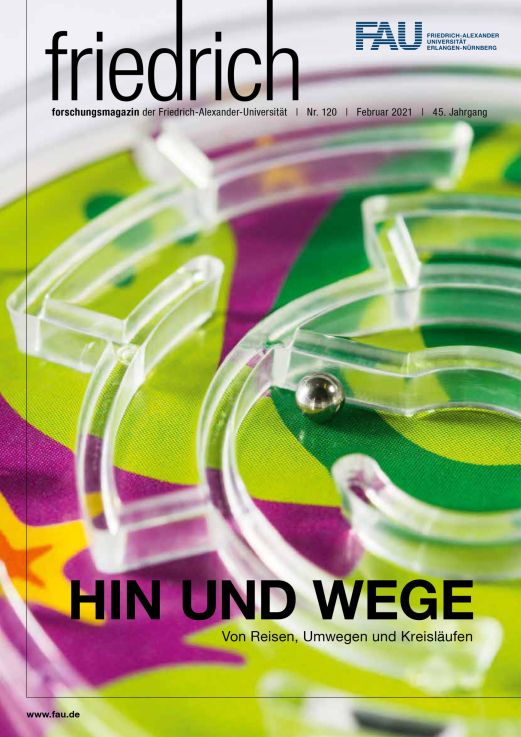‘Covid-19 is like a turbulent ocean.’

Enrique Zuazua is Humboldt Professor for Applied Analysis at FAU. As an expert in wave propagation, he is also studying the dynamics of the coronavirus pandemic.
Professor Zuazua, you analyse and model how waves propagate or traffic flows. What have these processes got to do with the coronavirus?
Waves are everywhere. And they have a few things in common: They have a shape, they move and they transport energy. In this sense, Covid-19 is also a wave, albeit not a monotonous one. It looks more like a turbulent ocean of disordered waves that pulsate, reverberate and reproduce themselves. Unfortunately, we humans are the medium in which the Covid-19 waves live. We are the agents that transport them and at the same time their victims.
The SIR model is the traditional approach for describing the spread of communicable diseases. Do you also use this Approach?
When analysing an epidemic it is important that we do not just count the number of infected persons but also consider those who have recovered as well as those who continue to be susceptible to infections. Bearing this in mind, we also draw reference from the SIR model. However, we also use other modern, data-based methods that allow us to adjust and refine the model on the basis of the data available.
The spread of a disease depends on a large number of influencing factors, such as immunisation rate, average age, number of contacts, population mobility. Which factors do you take into consideration in your model calculations?
We use a compartment model that allows different degrees of complexity. All the parameters you mention can be considered – and many more besides, such as pre-existing conditions or region. We have incorporated as much data as possible into our work, especially the stringency index, which measures how effective infection prevention measures are in containing the virus. Our perspective is that of control theory: Covid-19 is not a process that we are watching passively but one where we, as involved parties, want to prevent the spread of the pandemic.
What results have you arrived at so far?
We have developed models to follow, for example, the average development of the pandemic in various countries, primarily in the EU. What we unfortunately don’t have and, as far as I know, no-one else does either, is a global model. This is because one of Covid-19’s disturbing characteristics is its ability to move from one distant region to another. That is why we need to implement stricter controls at airports.
Can you derive recommendations for action from your simulations?
SIR and related models assume that Covid-19 will develop into a train of successive waves. Travelling waves broaden their reach by means of diffusion and penetrate into neighbouring regions. The most effective means against this at present is creating a firewall which prevents the spread from continuing. In other words: Social distancing and following strict behavioural rules.
Who are you collaborating with in your Covid-19 Research?
We are working with Cyprien Neverov, a talented data scientist from IMT Mines Alès in France. He is spending a semester at the Chair of Applied Analysis as part of our internship programme, which is co-financed by FAU and the Humboldt Professorship. We are also engaging with other FAU teams. The different modelling approaches and perspectives are very valuable as there is at least one certainty in this pandemic: Our entire knowledge is needed for the fight against Covid-19.
About the author
Matthias Münch studied sociology before working as a freelance journalist for several daily newspapers. Since 2001, he has been providing support for companies and academic institutions in the areas of PR and corporate communication.
FAU research magazine friedrich
 This article first appeared in our research magazine friedrich. You can order the print issue (only available in German) free of charge at presse@fau.de.
This article first appeared in our research magazine friedrich. You can order the print issue (only available in German) free of charge at presse@fau.de.